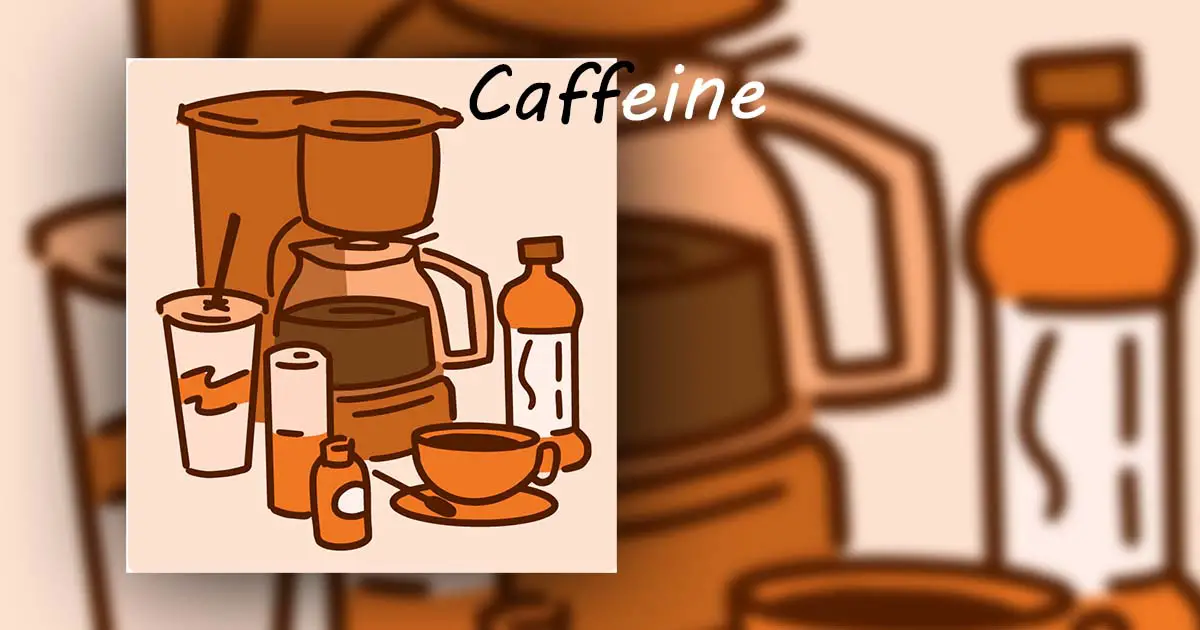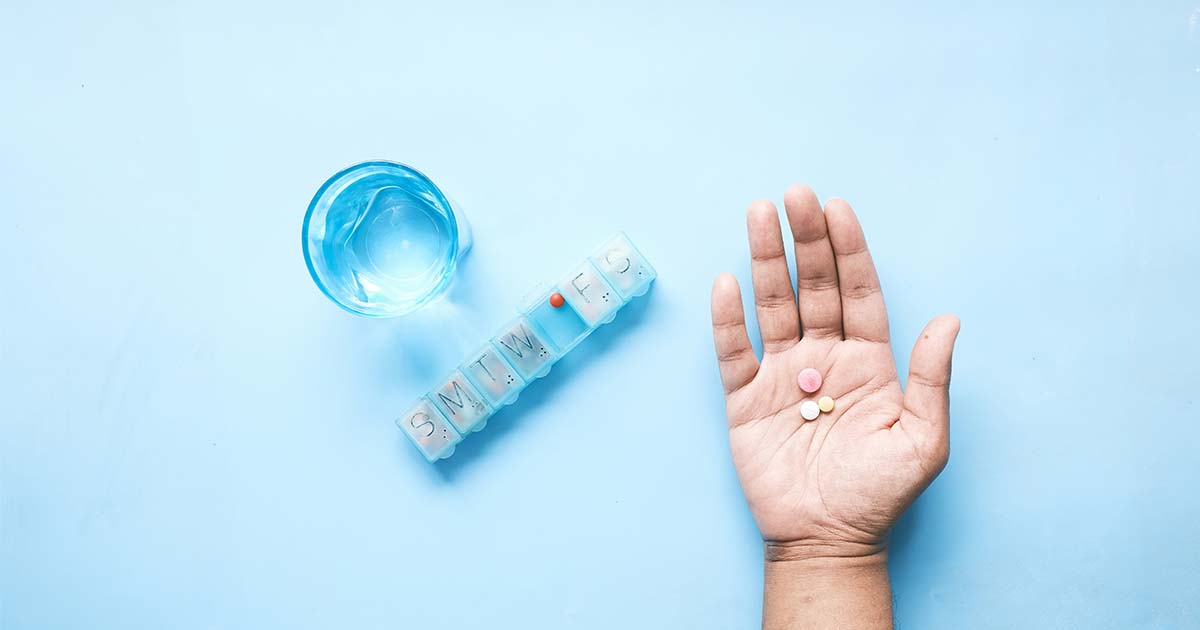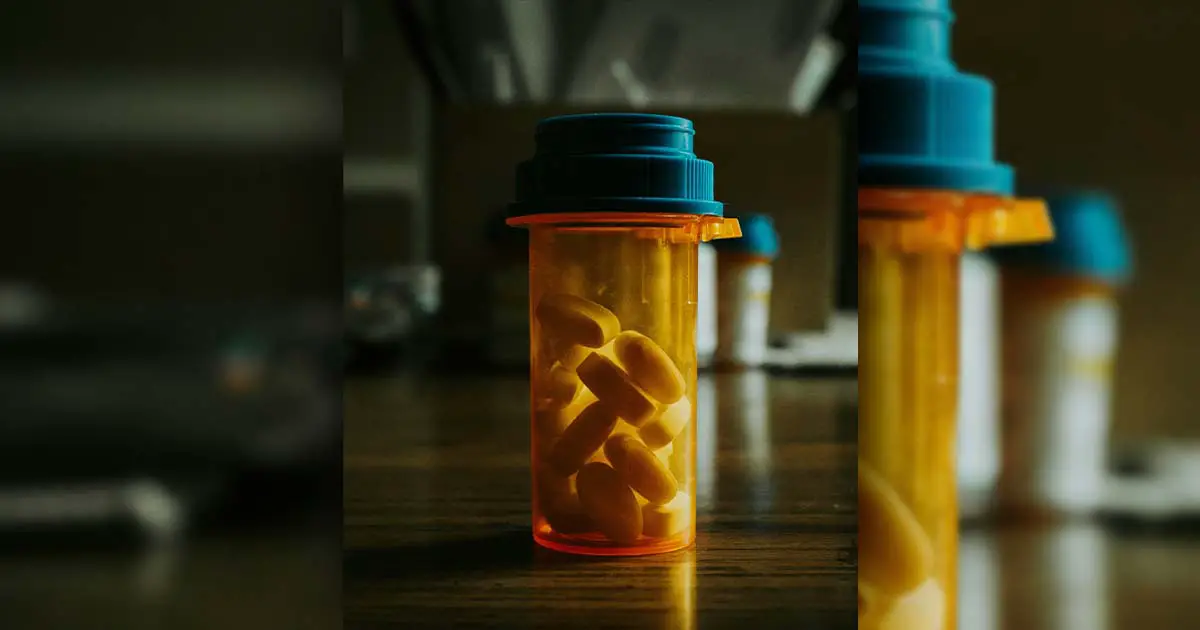Welcome, dear readers, to another insightful blog post where we unravel the mysteries surrounding your health queries. Today, we delve into a common question many individuals on terbinafine treatment may ask – “How long after taking terbinafine can i drink coffee?” But that’s not all; stick around as we explore related questions to ensure you have a comprehensive understanding.
Table of Contents
ToggleWhat is Terbinafine?
Terbinafine is an antifungal medication used to treat various fungal infections in the body. It belongs to a class of drugs known as antifungals and is commonly used to combat fungal infections affecting the skin, nails, and certain internal organs. Terbinafine works by inhibiting the growth of fungi, thereby helping to eliminate the infection.
One of the most common uses of terbinafine is in the treatment of fungal infections of the nails, such as onychomycosis. It is also used for skin infections like ringworm and jock itch caused by dermatophyte fungi.
Terbinafine is available in various forms, including oral tablets, creams, and gels. The oral form is often prescribed for more severe or systemic infections, while the topical forms are used for localized skin infections.
As with any medication, it is important to use terbinafine as directed by a healthcare professional, and patients should be aware of potential side effects and interactions with other drugs. Always consult with a healthcare provider for personalized advice regarding the use of terbinafine or any other medication.
Can you drink coffee with Terbinafine?

While there is no specific interaction between terbinafine and coffee, it’s generally advisable to avoid consuming caffeine-containing beverages or food close to the time you take terbinafine. This is because caffeine can affect the way your body absorbs and processes certain medications.
Caffeine may increase the absorption of terbinafine, potentially leading to higher levels of the drug in your bloodstream. This could increase the risk of side effects or alter the medication’s effectiveness.
To be on the safe side, it’s recommended to take terbinafine with water and avoid consuming large amounts of caffeine around the same time. However, individual responses to medications can vary, so it’s crucial to consult with your healthcare provider or pharmacist for personalized advice based on your specific health condition and medications you are taking. They can provide guidance on the best way to take terbinafine and whether any specific dietary restrictions or considerations apply to your situation.
Terbinafine and Coffee Interaction
Terbinafine, commonly used to treat fungal infections, raises questions about potential interactions with everyday items like coffee. It’s essential to understand the dynamics of this interaction to maintain your well-being.
When Can You Have Your Coffee?
When you’re on a terbinafine regimen, patience is key, especially if you’re a coffee lover. It’s generally recommended to wait at least one hour after taking terbinafine before sipping on your favorite brew. This waiting period allows the medication to be absorbed properly without interference from coffee’s components.
Factors Influencing Wait Time
- Food Intake: Consider whether you’ve taken terbinafine with or without food, as this can influence absorption rates.
- Individual Differences: Each person’s metabolism may vary, affecting the time it takes for terbinafine to be fully absorbed.
Addressing the Concerns
Now that we’ve covered the primary waiting period let’s address a few concerns that may linger in your mind.
Does Coffee Affect Terbinafine Efficacy?
While waiting an hour before indulging in your coffee is a general guideline, there’s limited evidence to suggest that coffee has a significant impact on terbinafine efficacy. However, moderation is crucial, as excessive caffeine intake might cause adverse reactions.
Potential Side Effects
Combining terbinafine with coffee rarely causes severe side effects. Nevertheless, be mindful of your body’s response. If you experience any discomfort or unusual symptoms, it’s wise to consult your healthcare provider.
Why Should I Avoid Caffeine While Taking Terbinafine?

The recommendation to avoid or limit caffeine consumption while taking terbinafine is based on the potential for interactions between caffeine and certain medications. Terbinafine is metabolized in the liver, and caffeine can influence the activity of certain liver enzymes that are involved in drug metabolism.
Caffeine, present in coffee, tea, and some other beverages, can affect the cytochrome P450 enzyme system in the liver. This enzyme system is responsible for breaking down various substances, including drugs. By influencing these enzymes, caffeine may potentially alter the metabolism of terbinafine, affecting its absorption, distribution, or elimination from the body.
Changes in drug metabolism can lead to unpredictable effects, including increased levels of the medication in the bloodstream, potentially raising the risk of side effects or diminishing the drug’s efficacy.
While the specific interaction between terbinafine and caffeine may not be fully elucidated, healthcare providers often advise caution and recommend taking medications with water to minimize potential interactions. It’s crucial to follow your healthcare provider’s guidance on how to take terbinafine and whether any specific dietary considerations, such as caffeine restriction, apply to your individual situation.
Always consult with your healthcare provider or pharmacist for personalized advice, as they can provide the most accurate information based on your health status and the medications you are taking.
Cautions To Take While Taking Terbinafine
When taking terbinafine, it’s important to follow your healthcare provider’s instructions carefully and be aware of certain precautions:
- Liver Function Monitoring: Terbinafine is metabolized in the liver, so it’s essential to monitor liver function during the course of treatment. Your healthcare provider may order liver function tests before starting terbinafine and periodically throughout the treatment.
- Alcohol Consumption: Limit or avoid alcohol while taking terbinafine, as both terbinafine and alcohol can affect the liver. Combining them may increase the risk of liver problems.
- Caffeine Consumption: While there is no clear evidence of a significant interaction, it’s generally advisable to avoid consuming large amounts of caffeine around the time you take terbinafine to minimize the potential for interactions.
- Drug Interactions: Inform your healthcare provider about all the medications, supplements, and over-the-counter drugs you are taking. Certain medications may interact with terbinafine, affecting its effectiveness or increasing the risk of side effects.
- Pregnancy and Breastfeeding: If you are pregnant, planning to become pregnant, or breastfeeding, consult your healthcare provider before using terbinafine. The safety of terbinafine in pregnancy and breastfeeding is not well-established, and your healthcare provider will weigh the potential risks and benefits.
- Allergies and Side Effects: Be aware of any allergic reactions or side effects. If you experience symptoms such as rash, itching, swelling, severe dizziness, or difficulty breathing, seek medical attention promptly.
- Dose and Duration: Take terbinafine exactly as prescribed by your healthcare provider. Do not alter the dosage or stop the medication without consulting them, even if your symptoms improve. Completing the full course of treatment is important to ensure the infection is completely eradicated.
- Routine Follow-up: Attend follow-up appointments with your healthcare provider as scheduled. They will monitor your progress and assess any potential side effects or complications.
It’s crucial to communicate openly with your healthcare provider, informing them of any pre-existing medical conditions, ongoing treatments, or changes in your health during the course of terbinafine treatment. This helps ensure that the medication is being used safely and effectively for your specific situation.
What Should I Avoid While Taking Terbinafine?
While taking terbinafine, there are certain things you should avoid or use with caution to ensure the medication’s effectiveness and minimize potential side effects. Here are some recommendations:
- Alcohol: Limit or avoid alcohol consumption while on terbinafine. Both terbinafine and alcohol can affect the liver, and combining them may increase the risk of liver problems.
- Caffeine: While the interaction is not well-established, it’s generally advisable to avoid consuming large amounts of caffeine around the time you take terbinafine to minimize the potential for interactions.
- Other Medications: Inform your healthcare provider about all the medications you are taking, including prescription, over-the-counter drugs, and supplements. Certain medications may interact with terbinafine, affecting its effectiveness or increasing the risk of side effects.
- Grapefruit and Grapefruit Juice: Grapefruit and grapefruit juice can interfere with the metabolism of some medications, including terbinafine. It’s advisable to avoid consuming grapefruit products while on terbinafine.
- Pregnancy and Breastfeeding: If you are pregnant, planning to become pregnant, or breastfeeding, consult your healthcare provider before using terbinafine. The safety of terbinafine in pregnancy and breastfeeding is not well-established.
- Allergens and Irritants: If you have known allergies or sensitivities, be cautious about potential allergens or irritants, especially in topical forms of terbinafine like creams or gels. Check the ingredients to avoid any substances that may trigger an allergic reaction.
- Overexposure to Sunlight: Some individuals may experience increased sensitivity to sunlight while taking terbinafine. It’s advisable to use sunscreen and protective clothing to avoid excessive sun exposure.
- Missing Doses or Stopping Treatment Early: Follow your healthcare provider’s instructions regarding the dosage and duration of terbinafine treatment. Do not skip doses or stop the medication early, even if your symptoms improve. Completing the full course of treatment is important to ensure the infection is completely eradicated.
Always consult with your healthcare provider or pharmacist for personalized advice based on your health status and the medications you are taking. They can provide specific guidance tailored to your individual needs and circumstances.
What drinks to avoid while taking terbinafine?
While there are no specific restrictions on the type of drinks you can consume while taking terbinafine, it’s generally advisable to be cautious with certain beverages that may have potential interactions or effects on the liver. Here are some considerations:
- Alcohol: It’s recommended to limit or avoid alcohol while taking terbinafine. Both terbinafine and alcohol can affect the liver, and combining them may increase the risk of liver problems. To ensure the safety of your liver function, it’s best to abstain from alcohol or consume it in moderation.
- Caffeine: While the interaction between terbinafine and caffeine is not well-established, it’s generally advisable to avoid consuming large amounts of caffeine around the time you take terbinafine. This is to minimize the potential for interactions, as caffeine can influence liver enzymes that are involved in drug metabolism.
- Grapefruit Juice: Grapefruit and grapefruit juice can interfere with the metabolism of some medications, including terbinafine. It’s advisable to avoid consuming grapefruit products while on terbinafine to prevent any potential interactions.
- Highly Acidic or Citrus Beverages: In some cases, highly acidic or citrus beverages might cause stomach upset or gastrointestinal irritation. While this is not a direct interaction with terbinafine, it’s advisable to be mindful of your stomach’s sensitivity and opt for more neutral or non-acidic drinks.
Remember, individual responses to medications can vary, and it’s crucial to consult with your healthcare provider or pharmacist for personalized advice based on your health status and the medications you are taking. They can provide specific guidance tailored to your individual needs and circumstances.
Does terbinafine affect sleep?

Terbinafine, in general, is not known to have a direct impact on sleep patterns. However, individual responses to medications can vary, and some people may experience side effects that could potentially affect their sleep.
While sleep disturbances are not commonly reported with terbinafine use, it’s important to be aware of the possible side effects associated with the medication. If you are experiencing any unusual or bothersome symptoms, including changes in sleep patterns, it’s advisable to consult with your healthcare provider.
If you have concerns about the impact of terbinafine on your sleep or if you notice any changes in your sleep quality while taking the medication, discuss this with your healthcare provider. They can provide guidance based on your specific situation and may consider adjustments to your treatment plan if necessary.
It’s also worth noting that factors such as the underlying condition being treated, other medications you may be taking, and individual health characteristics can contribute to variations in how people respond to medications. Always follow your healthcare provider’s instructions and communicate any concerns or side effects you may be experiencing.
Potential Dangers Of Terbinafine
Terbinafine is generally considered safe and effective for the treatment of fungal infections when used as prescribed by a healthcare professional. However, like any medication, it comes with potential risks and side effects. Here are some potential dangers associated with terbinafine:
- Liver Function: Terbinafine is metabolized in the liver, and there have been rare cases of severe liver injury reported in individuals taking terbinafine. Regular monitoring of liver function through blood tests is typically recommended during the course of treatment to detect any signs of liver problems early.
- Allergic Reactions: Some people may experience allergic reactions to terbinafine. If you develop symptoms such as rash, itching, swelling, severe dizziness, or difficulty breathing, seek medical attention immediately.
- Gastrointestinal Issues: Terbinafine may cause gastrointestinal side effects, including nausea, diarrhea, and abdominal pain. If these symptoms are severe or persistent, it’s important to inform your healthcare provider.
- Skin Reactions: Topical formulations of terbinafine, such as creams or gels, may cause local skin reactions in some individuals. If you experience irritation, redness, or worsening of the skin condition, consult your healthcare provider.
- Drug Interactions: Terbinafine can interact with other medications. It’s crucial to inform your healthcare provider about all the medications, supplements, and over-the-counter drugs you are taking to avoid potential interactions.
- Sensitivity to Sunlight: Some individuals may experience increased sensitivity to sunlight while taking terbinafine. It’s advisable to use sunscreen and protective clothing to prevent sunburn.
- Neutropenia: In rare cases, terbinafine has been associated with a decrease in white blood cell count (neutropenia). Regular blood tests may be conducted to monitor for this potential side effect.
- Taste Disturbances: Terbinafine has been reported to cause alterations in taste perception in some individuals. This side effect is usually reversible upon discontinuation of the medication.
It’s important to use terbinafine under the guidance of a healthcare professional who can assess the potential risks and benefits based on your individual health status. Always adhere to the prescribed dosage and duration of treatment, and promptly report any unusual or severe side effects to your healthcare provider. If you have concerns or questions about terbinafine, discuss them with your healthcare provider for personalized advice.
What Is The Best Time Of Day To Take Terbinafine?

The best time of day to take terbinafine can vary depending on your individual preferences and lifestyle, as well as the specific instructions provided by your healthcare provider. Generally, terbinafine is often taken once daily, and it can be taken with or without food.
To maximize its effectiveness and minimize the risk of side effects, it’s advisable to follow your healthcare provider’s recommendations and the instructions on the prescription label. If you are prescribed a specific time to take terbinafine, such as morning or evening, it’s important to adhere to that schedule.
If the medication causes any stomach upset, taking it with food may help alleviate this side effect. However, if you have specific concerns or questions about the timing of your terbinafine dose, it’s recommended to consult with your healthcare provider or pharmacist. They can provide personalized guidance based on your health condition and other medications you may be taking.
Remember to take terbinafine exactly as prescribed and complete the full course of treatment, even if your symptoms improve before the medication is finished. If you have any concerns or experience unexpected side effects, it’s important to communicate with your healthcare provider.
How Long After Taking Terbinafine Can I Drink?

The recommendation regarding alcohol consumption after taking terbinafine can vary based on individual responses and healthcare provider advice. Terbinafine is metabolized in the liver, and both terbinafine and alcohol can affect liver function. Combining them may increase the risk of liver problems.
In general, it’s advisable to avoid alcohol or limit its consumption while taking terbinafine and for some time after completing the treatment. The specific duration can depend on factors such as the individual’s health status, the dosage of terbinafine, and the overall treatment plan.
It’s crucial to follow your healthcare provider’s guidance and ask them about the specific time frame for avoiding alcohol after taking terbinafine. They can provide personalized advice based on your medical history and the specific details of your treatment.
If you have concerns or questions about alcohol consumption while on terbinafine, do not hesitate to consult with your healthcare provider or pharmacist for clear and specific guidance. They can help ensure that you are taking the medication safely and minimizing any potential risks.
How Long Does Terbinafine Stay In Your Liver?
Terbinafine is metabolized in the liver, and the elimination half-life of terbinafine is approximately 16 to 18 hours. The half-life represents the time it takes for half of the drug to be cleared from the body. It’s important to note that while the half-life provides an indication of how long a drug stays in the body, complete elimination may take several days.
After discontinuing terbinafine, it can take a few days to a week for the majority of the drug to be eliminated from the body. However, traces of the medication may still be detectable in the system for a longer period.
Individual factors, such as liver function, kidney function, and overall health, can influence how quickly the body metabolizes and eliminates terbinafine. Additionally, any existing liver conditions or interactions with other medications can affect the drug’s clearance.
If you have concerns about terbinafine’s presence in your system or potential interactions, it’s advisable to discuss these with your healthcare provider. They can provide more specific information based on your individual health status and guide you on any precautions or monitoring that may be necessary.
Can I eat fruit while taking terbinafine?

Yes, in general, there is no specific restriction on eating fruit while taking terbinafine. Terbinafine is an antifungal medication commonly used to treat fungal infections, and its effectiveness is not known to be affected by the consumption of fruit.
However, it’s always a good idea to follow your healthcare provider’s specific instructions regarding your medication and diet. If you have concerns or questions about potential interactions between terbinafine and specific fruits, it’s best to consult with your healthcare provider or pharmacist for personalized advice.
In most cases, maintaining a balanced and healthy diet, which includes a variety of fruits, can contribute to overall well-being and may complement your treatment plan. If you have any dietary restrictions or considerations, your healthcare provider can provide guidance based on your individual health status and the medications you are taking.
Can I Drink Decaf Coffee While Taking Terbinafine?
In general, drinking decaffeinated coffee is unlikely to have a significant interaction with terbinafine. The concern with caffeine is more related to its potential influence on liver enzymes, and decaffeinated coffee contains much lower levels of caffeine compared to regular coffee.
However, individual responses to medications can vary, and it’s always advisable to consult with your healthcare provider or pharmacist for personalized advice based on your specific health condition and the medications you are taking.
If you have concerns or questions about the potential interaction between decaffeinated coffee and terbinafine, your healthcare provider can provide guidance. They can consider factors such as your overall health, any pre-existing conditions, and other medications you may be taking to offer the most accurate advice for your situation.
Conclusion:
In conclusion, the waiting period after taking terbinafine before enjoying your coffee is crucial for optimal medication absorption. If you’re wondering, “How long after taking terbinafine can I drink coffee?” it’s essential to consider this interval. While the evidence on coffee affecting terbinafine’s efficacy is limited, moderation is always key. Remember, individual responses may vary, so pay attention to your body’s signals.
We hope this article has provided clarity on the terbinafine-coffee dilemma and answered your question about how long after taking terbinafine you can drink coffee. Stay tuned for more informative content, where we unravel more questions related to your health and well-being. Until then, sip responsibly and stay healthy!
Can i drink coffee after permanent crown?


